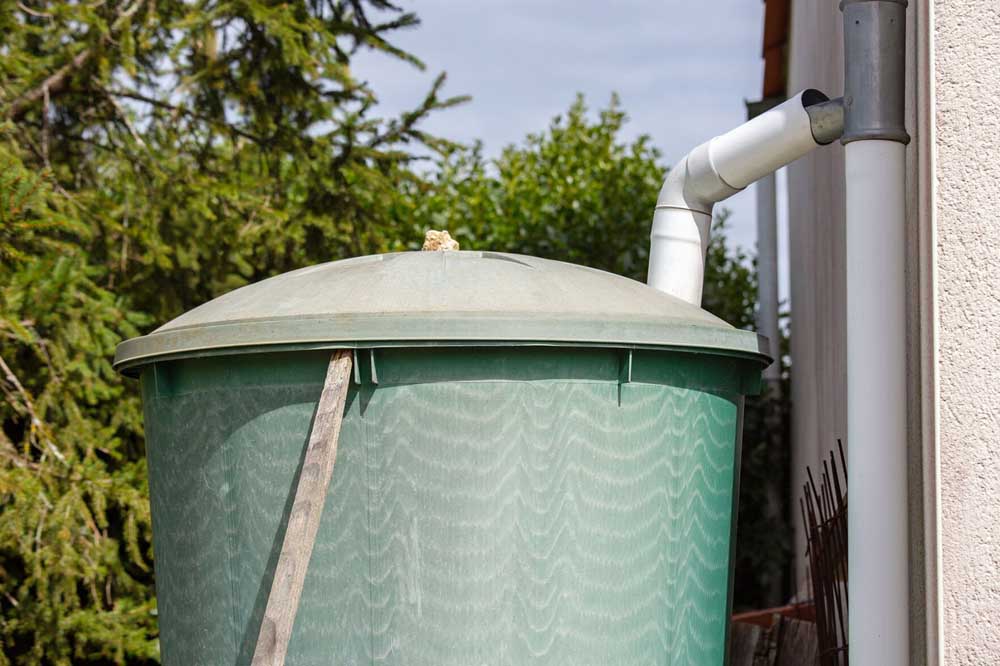Critics warn against changing Oregon laws for rain collection, groundwater
Published 3:15 pm Thursday, February 2, 2023

- A bill in the Oregon Legislature would expand a law that allows the collection of rain runoff.
SALEM — Oregon regulators would have less authority over rainwater collection and groundwater pumping under a couple of bills that critics warn would profoundly change state water law.
Currently, Oregon residents don’t need a water rights permit to collect precipitation from an “artificial impervious surface,” commonly allowing them to store rainwater from rooftops without approval from regulators.
Under Senate Bill 713, that exemption would be expanded to allow the collection of rainwater or melting snow that’s “diffused over the surface of the ground” before it enters a well-defined channel.
Sen. Dennis Linthicum, R-Klamath Falls, said the approach would rely on the “ingenuity of every local farmer or rancher or landholder” to store water in the aggregate, similar to a “thousand stars in the night sky.”
“This is a beautiful way to get the aquifers built back up with small ponds of various sizes and various engineering capacity without spending taxpayer dollars,” said Linthicum, SB 713’s chief sponsor.
Some snowpacks have been declining in recent decades, increasing the need for man-made water storage, but large reservoirs can be costly, he said.
The bill would take a dispersed approach to the problem by letting farmers create “contour ditches” and other land formations along slopes, Linthicum said. The water would gather in numerous ponds on individual properties instead of a central location.
As long as it’s harvested before flowing into specific channels, the stored water could be put to beneficial use without major impacts on waterways, he said.
Opponents of SB 713 disagree with him on this point, arguing that such rainwater collection could adversely affect senior water rights.
“This basically upends Oregon water law,” said Clair Klock, resource conservationist for the Clackamas County Soil and Water Conservation District.
Under the arid West’s “first in time, first in right” doctrine of prior appropriation, senior water right holders have priority over junior users, regardless of whether they’re upstream or downstream.
Critics of SB 713 fear that if rainfall is diverted on a broad enough scale, it would reduce stream flows to the detriment of senior users and aquatic species.
Storing precipitation that falls on impervious artificial surfaces necessarily involves small quantities of water, said Stan Dean, advocacy committee chair for the Oregon Association of Conservation Districts.
On the other hand, SB 713 could involve much more extensive collections of snow and rain — for example, by digging a ditch that traps water flowing down an entire hillside, according to Dean.
“I’d leave the exemption the way it is,” he said.
Linthicum has proposed another water law revision, Senate Bill 710, that would limit the state government’s ability to shut down irrigation wells based on broad hydrological models.
In the past, for example, the Oregon Water Resources Department ordered wells within a mile of the Sprague River to stop pumping groundwater to avoid interfering with its surface flows.
The decision was backed by a hydrological model that wasn’t appropriate for the region and didn’t prove that individual wells were actually reducing the river’s stream flows, Linthicum said.
“We need local, site-specific data to regulate wells on or off,” he said.
Some families in the area “tragically lost their very livelihoods” after their water was cut off but were still left wondering, “where is the science for that?” Linthicum said.
Under SB 710, the agency would need site-specific evidence of interference with a senior water right to justify shutting down a well.
“This need to regulate groundwater must be scientifically justified and related to the wells at hand,” Linthicum said.
The proposal would not change regulatory policies that prevent groundwater waste and pollution, he said. “All that stays in place. It doesn’t affect any of those features of OWRD’s rules and regulations.”
The OWRD’s interim director, Doug Woodcock, said the well shutdowns within a mile of the Sprague River were based on an established hydrological connection between ground and surface waters.
When numerous irrigation wells draw water from a basin, “those impacts coalesce” and can reduce stream flows, Woodcock said.
The bill would elevate site-specific data about an individual well above all the other hydrological information within a basin, he said.
Currently, the agency considers site-specific data as part of the broader context and regulates based on the “preponderance of the evidence,” Woodcock said, noting that its approach has been affirmed in state court.
“We’re building a framework for how that hydrology works,” he said.
The bill “jumps to a simplistic conclusion” by not accounting for the complex interactions between ground and surface water, said Dean, of the Association of Conservation Districts.
“SB 710 takes out of consideration cumulative impacts,” he said.
The agency recognizes that its rules could be improved and is working with stakeholders to update them, but the bill would undermine this process, Dean said.
“OWRD should be allowed to proceed without having its options cut off,” he said.




